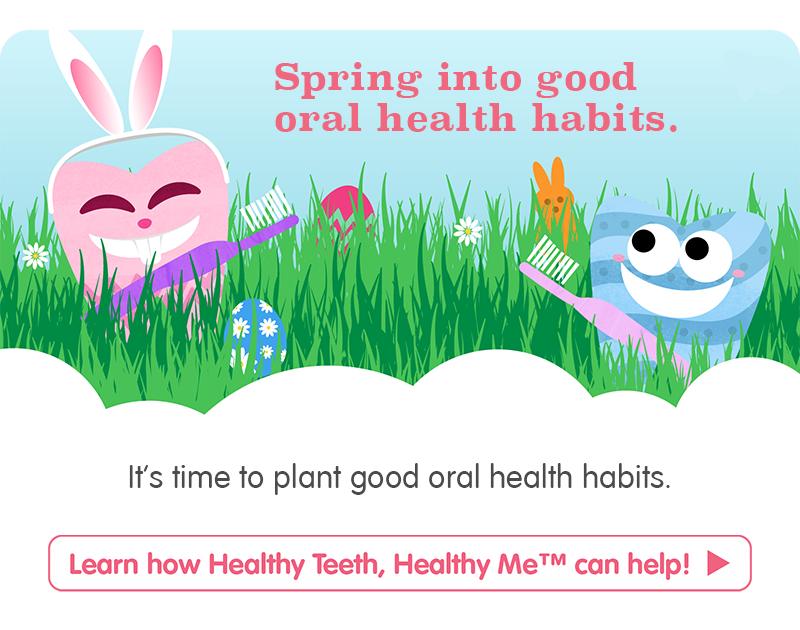Summertime, sunshine and sweet treats go hand in hand. Children love the leisurely, freedom-filled days of swimming and spending time with friends by the pool. They’re also big fans of having a popsicle, ice cream cone or a cold glass of lemonade within reach at any given moment.
However, there are a few things you should know regarding how these choices can affect the health of their teeth.
How Snacks Shape Oral Health
Tooth decay arises when sugary or starchy foods affix to our teeth and are broken down by naturally occurring oral bacteria. When this process begins, our mouths release small amounts of acid, which starts dissolving tooth enamel.
With time, damage sets in, ultimately leading to tooth decay and cavities, especially in our youth. Any carbohydrates, including candy, breakfast cereals, popsicles and sodas will wreak havoc on children’s teeth.
The worst offenders are snacks that are both sticky and sugary, such as gummy bears, fruit rollups, fruit snacks, and licorice. These types of treats can adhere to your children’s teeth and linger there for hours until their teeth are brushed and flossed before bed.
Certain beverages pack a mean punch as well, including soda pop, lemonade and fruit juices. Although it’s fine to allow kids to enjoy sweets in moderation, there are some healthier alternatives that most dentists recommend.
Tasty Suggestions For Healthy Mouths

The American Dental Association notes that low-fat dairy foods, fruits, vegetables, whole grains and healthy protein sources such as seeds, nuts, legumes and lean meats are all part of a well-rounded diet. When children eat a variety of foods from each of these categories, it greatly enhances the health of their bodies, teeth and gums.
However, we all know that getting kids to make smart snacking decisions isn’t always the most natural thing in the world.
The following munchies are delicious alternatives to cookies, candy and ice cream. Substituting these dentist-approved treats can play a positive role in your child’s oral health and lead to a cavity-free checkup at their next bi-annual appointment.
- Chilled, sliced watermelon
- Low-fat yogurt with fresh berries
- Apples and cheddar cheese
- Whole grain pita with hummus
- Homemade smoothies made with almond milk, fresh berries and ice
- Crunchy veggies with dip
- Unbuttered popcorn
- Pineapple, orange and pear fruit salad (or any colorful combination of fruit)
- Turkey or ham and cream cheese rollups
- Low-fat string cheese/sliced cheese
- Sunflower seeds and mixed nuts
- Dark chocolate, in moderation
Worst Culprits For Cavities
It should be easier to steer your children in the right direction moving forward with so many healthy alternatives to sugary snacks mentioned above.
Of course, moderation is the key to anything in life, and there will be occasions that call for a sweet, sugary celebration. At family gatherings, birthday parties and other social events, there are a handful of treats that should be avoided at all costs if possible. The list of dentists’ “no-no’s” are as follows:
- Sour Gummy Worms (highly acidic candy)
- Gummy Bears (or any type of gummy candy)
- Lollipops (hard candy)
- Salt-water taffy/Laffy Taffy
- Caramels
- Jolly Ranchers
- Marshmallows
- Raisinets
Best Tips For Super Smiles
Regardless of how hard we try to keep our kids’ hands out of the cookie jar, they’ll inevitably sink their teeth into something sugary, chewy and sweet. The best bet for avoiding tooth decay is to keep little ones on a set routine, which includes brushing their teeth thoroughly twice a day for two minutes at a time, flossing regularly and using an age-appropriate mouth rinse.
Chewing sugar-free gum is also a healthy alternative for when they’re asking for something sweet. Making healthy choices starts at an early age but can lead to a lifetime of healthy smiles and positive dental habits.
Ultimately, the best tip is to make sure children are seeing their dentist every six months. For babies, it is just as important – they should see the dentist at the first sign of a tooth or by their first birthday. Most insurance plans include coverage for baby’s first visit and for regular childhood trips to the dentist.


